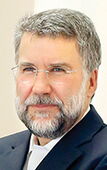Processing Your Payment
Please do not leave this page until complete. This can take a few moments.
- April 29, 2024 Edition
- April 15, 2024 Edition
- April 1, 2024 Edition
- March 18, 2024 Edition
- March 4, 2024 Edition
- February 19, 2024 Edition
- February 5, 2024 Edition
- January 22, 2024 Edition
- January 8, 2024 Edition
- 2024 Book of Lists
- December 11, 2023 Edition
- November 27, 2023 Edition
- November 13, 2023 Edition
- October 30, 2023 Edition
- October 16, 2023 Edition
- October 2, 2023 Edition
- September 18, 2023 Edition
- September 4, 2023 Edition
- August 21, 2023 Edition
- August 7, 2023 Edition
- July 24, 2023
- July 10, 2023
- June 26, 2023
- June 12, 2023
- May 29, 2023
- May 15, 2023
- May 1, 2023
Global demand spurs growth in new forest product sectors
James Chittum sees a tremendous opportunity for Maine companies that make products using renewable biobased resources from forest, farm and sea instead of petroleum-based compounds such as polyethylene or polystyrene.
- Focus on Greater PortlandFocus on Greater Portland
Portland's real estate crunch is a golden opportunity for Westbrook, Gorham
Lori Valigra - Focus on Greater Portland
One on One with Maine Department of Marine Resources Commissioner Patrick Keliher
Laurie SchreiberIn the five years since Maine Department of Marine Resources Commissioner Patrick Keliher took on the agency's leadership, he and his team have played a central role in making the state's commercial fishing industry stronger.
- How To'sHow To's
How To: Argue, properly
Jim MillikenThis very intense, very intelligent guy startled me by saying something I never had heard before. He interrupted a vigorous argument with me by saying, “You know, Jim, I see your point now. I agree with you. You're right.”
- How To'sHow To's
How To: Turn new federal overtime rules into a competitive advantage
Art BoulayThe new federal overtime rules will more than double the threshold for employers to avoid paying overtime when salaried employees work over 40 hours — moving from $23,660 per year to $47,476 per year. This presents serious challenges for employers. I am not writing to defend or explain the law, but rather to discuss how to turn this problem to a competitive advantage.
From the Editor: Why they call it The County
We who live in southern Maine tend to think of Aroostook County, a.k.a. The County, as this amorphous space that takes up the upper half of Maine. There are plenty of people from southern Maine who have never been to The County and have no plans to go to The County. And that's their loss.
- In ShortIn Short
IN SHORT
New hires Thomas College in Waterville hired Ted Prawat, Kate Cook Whitt and Katie Rybakova as education faculty members at its Center for Innovation in Education
Today's Poll
Over the past several months, banks and other businesses have been looking for the Federal Reserve Board to cut interest rates, but the waiting game continues.
Basing its decision on new economic reports, the Fed on May 1 said it doesn’t plan to cut rates until it has “greater confidence” that inflation is slowing toward the central bank's 2% target. Three rate reductions have been projected for 2024, likely starting in June.
But for now, it appears the key borrowing rate in the U.S. will stay at a two-decade high of roughly 5.3%.
Keeping the rate so high for so long may tame inflation, but can also discourage new investment and business growth.
“The Fed is really stressing the banking industry,” said Andrew Silsby, president and CEO of Augusta-based Kennebec Savings Bank, in a Mainebiz story last month. “The economic environment is really quite difficult, but I haven’t quite figured out whether we’re through the storm or in the eye of the storm.”

The Giving Guide
The Giving Guide helps nonprofits have the opportunity to showcase and differentiate their organizations so that businesses better understand how they can contribute to a nonprofit’s mission and work.
Learn More
Work for ME
Work for ME is a workforce development tool to help Maine’s employers target Maine’s emerging workforce. Work for ME highlights each industry, its impact on Maine’s economy, the jobs available to entry-level workers, the training and education needed to get a career started.
Learn More
The Mainebiz Innovation Hub
This special publication examines the innovation infrastructure in Maine and the resources available to help entrepreneurs at the various stages of their journey.
Learn more-
The Giving Guide
The Giving Guide helps nonprofits have the opportunity to showcase and differentiate their organizations so that businesses better understand how they can contribute to a nonprofit’s mission and work.
-
Work for ME
Work for ME is a workforce development tool to help Maine’s employers target Maine’s emerging workforce. Work for ME highlights each industry, its impact on Maine’s economy, the jobs available to entry-level workers, the training and education needed to get a career started.
-
The Mainebiz Innovation Hub
This special publication examines the innovation infrastructure in Maine and the resources available to help entrepreneurs at the various stages of their journey.
ABOUT
NEW ENGLAND BUSINESS MEDIA SITES
No articles left
Get access now
In order to use this feature, we need some information from you. You can also login or register for a free account.
By clicking submit you are agreeing to our cookie usage and Privacy Policy
Already have an account? Login
Already have an account? Login
Want to create an account? Register






